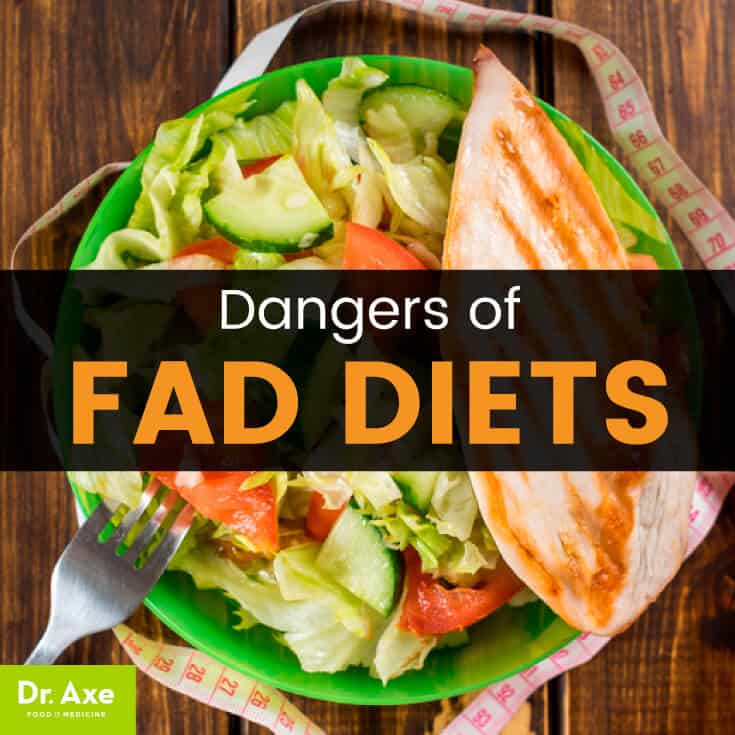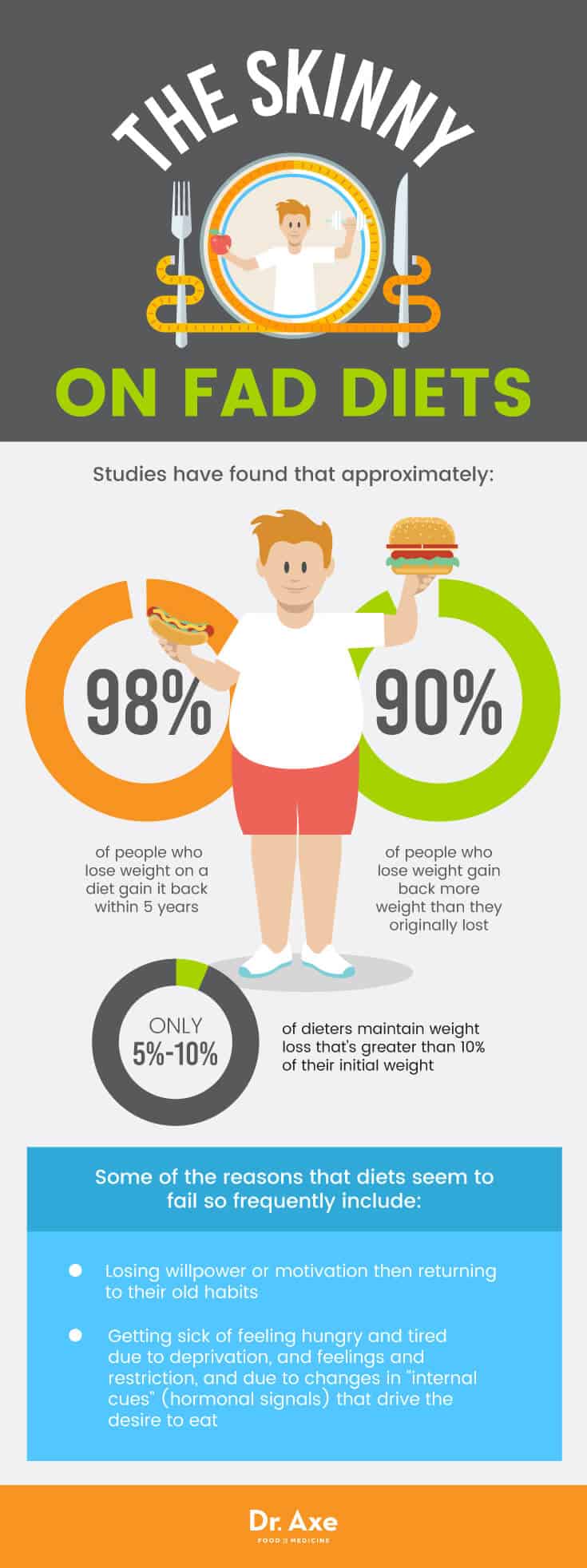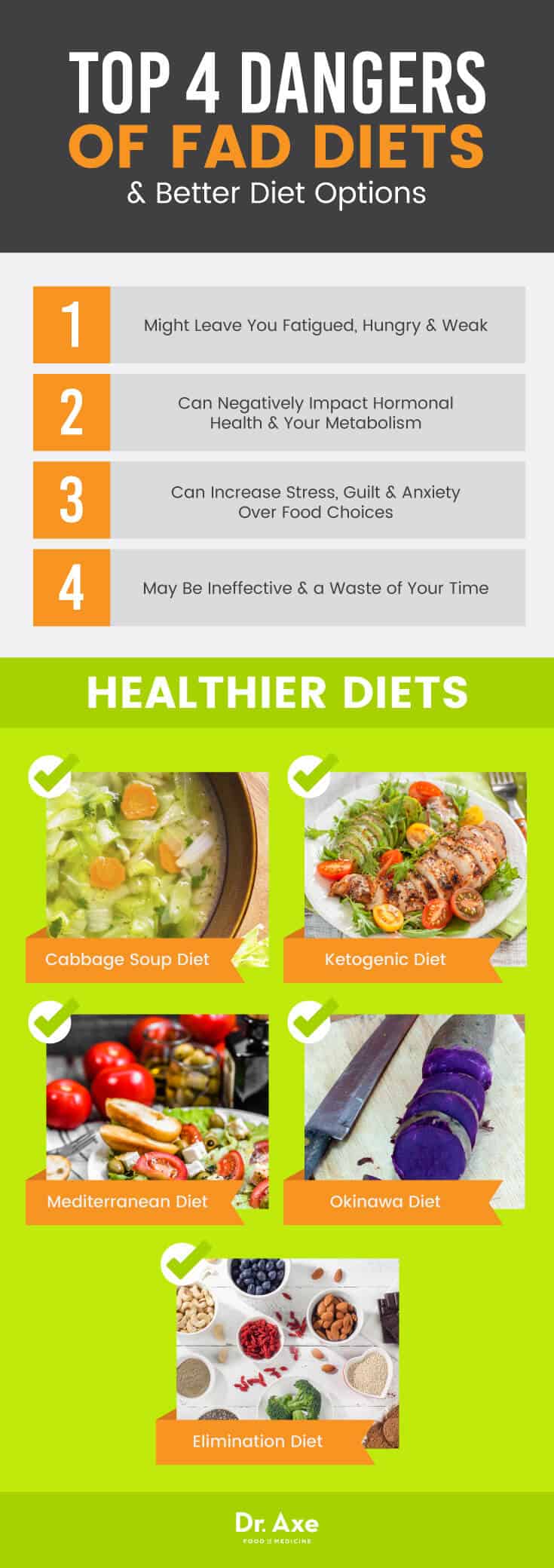This Dr. Axe content is medically reviewed or fact checked to ensure factually accurate information.
With strict editorial sourcing guidelines, we only link to academic research institutions, reputable media sites and, when research is available, medically peer-reviewed studies. Note that the numbers in parentheses (1, 2, etc.) are clickable links to these studies.
The information in our articles is NOT intended to replace a one-on-one relationship with a qualified health care professional and is not intended as medical advice.
This article is based on scientific evidence, written by experts and fact checked by our trained editorial staff. Note that the numbers in parentheses (1, 2, etc.) are clickable links to medically peer-reviewed studies.
Our team includes licensed nutritionists and dietitians, certified health education specialists, as well as certified strength and conditioning specialists, personal trainers and corrective exercise specialists. Our team aims to be not only thorough with its research, but also objective and unbiased.
The information in our articles is NOT intended to replace a one-on-one relationship with a qualified health care professional and is not intended as medical advice.
Dangers of Fad Diets
December 12, 2017

The vast majority of adults have been “on a diet” at some point in their lives, usually with the hopes of losing extra weight. One look into the plethora of diet advice and dietary plans available today, and it’s easy to feel instantly overwhelmed by information, much of which is contradictory. From diet pills to juice detox diets, today fad diets are everywhere. But are these quick-fix, often extreme diets effective, and more importantly, are they even healthy?
Most nutrition experts agree that the biggest problem with fad diets is that they’re not sustainable. Sure, you might be able to exclude entire food groups for a period of time or survive on way less calories than your body really requires, but the honeymoon phase with all-or-nothing dieting hardly ever lasts for long. As you’ll learn more about below, fad diets can also pose risks for side effects.
Dangers of taking dietary advice to the extreme — even if the person giving it to you is qualified and has good intentions — include slowing down your metabolism, increasing anxiety or stress over your food choices, and sabotaging your energy levels due to a thyroid imbalance. To be clear, making certain changes to your diet, such as cutting out processed foods in place of eating more real foods, is usually very wise and unlikely to cause any problems. But it’s also important to realize that every person is different, so a diet that works for your friend or doctor might not be the best fit for you.
The bottom line about fad diets? Instead of turning to fad diets in order to lose weight quickly, I recommend practicing patience and putting your effort toward taking the long-term approach to developing healthy, sustainable eating habits.
What Are Fad Diets?
What are different types of fad diets?
According to the Association of UK Dietitians, “A fad diet is the kind of plan where you eat a very restrictive diet with few foods or an unusual combination of foods for a short period of time and often lose weight very quickly. However, most people then get fed-up, start over-eating and choose less healthy foods and pile the pounds back on.” (1)
Fad diets are considered those that tend to become popular for a given period of time, such as several years or even decades, and then become replaced by yet another dietary theory, which might even be very different (or completely opposite) compared to the preceding diet. Fad diets typically fall into one of two categories: low-carb/high-protein or high-carb/low-fat diets.
Examples of popular fad diets include:
- Macrobiotic Diet
- Atkins Diet
- Ornish Diet
- Zone Diet
- South Beach Diet
- Military Diet
- Master Cleanse Diet
- Vegan Diet or Vegetarian Diet
- DASH Diet
- Even the Paleo Diet and Gluten-Free Diet — which have become increasingly popular in the past five to 10 years — are considered to be “fads” by some health researchers
What is the meaning of “food fad”?
Fad foods are those that are promoted as “magical fat-burning foods” that will quickly and easily lead to weight loss or health improvements. It can also be a fad to avoid certain foods or ingredients, a type of severe limitation. One example is excluding a whole food group, such as carbs or all dairy products. Food faddism often promotes eating mainly one type of food or certain foods only in particular combinations.
What is the meaning of faddism?
Faddism is a trend that encourages people to seek and adhere briefly to a passing variety of unusual diets, beliefs, regulations, etc. (2) Fads are usually tied to conformity, fitting in with a crowd or peer group, uniformity, and belonging. Other definitions include “a tendency to like a style, activity, or interest for a very short period of time.” (3)
By definition, faddism does not last. According to research done at the Boston University School of Medicine, most people are not aware that diets very rarely work for more than several weeks or months. Dieters are usually unaware of the facts pertaining to how dieting impacts their health or why fad diets fail so often. Studies have found that approximately: (4)
- 98 percent of people who lose weight on a diet gain it back within five years.
- 90 percent of people who lose weight gain back more weight than they originally lost.
- Only 5 percent to 10 percent of dieters maintain weight loss that’s greater than 10 percent of their initial weight.
- Some of the reasons that diets seem to fail so frequently include people losing willpower or motivation and returning to their old habits, people getting sick of feeling hungry and tired due to deprivation and feelings of restriction, and due to changes in “internal cues” (hormonal signals) that drive the desire to eat.
Related: The Warrior Diet: Reviews, Meal Plan, Pros & Cons

Related: Intuitive Eating: The Anti-Dieting Approach to Losing Weight
4 Dangers of Fad Diets
1. Might Leave You Fatigued, Hungry and Weak
Because fad diet plans are commonly marketed to people looking to lose weight, they’re often restrictive and low in calories. Not eating the appropriate amount of calories that your body requires, based on variables like your level of activity and genetics, can really backfire, however — such as by pushing you into a metabolic state that’s often referred to as “starvation mode.” Remember that just because the number on the scale might drop, it doesn’t mean this is a good thing. A reduction in subcutaneous adipose tissue (body fat) is associated with improvements in markers like insulin sensitivity, but weight loss alone might mean you’re losing mass from other areas that you don’t want to be.
Many studies have found that chronic dieting and over-exercising have negative affects on your metabolism, hunger levels, energy, mood, sleep, hormone/reproductive health and body weight. Drastic and fast weight changes can even cause loss of tissue in your vital organs, decreased bone density and muscle wasting. (5) In addition, cognitive processes (like thinking, coordination and memory) are likely to become sluggish and foggy if you’re not properly fueled, which can cause moodiness, fatigue and muscle weakness.
A low level of ATP production (adenosine triphosphate, which is the chemical energy that powers your cells) will send signals to the brain that something isn’t right. All of these things pose negative effects on your resting energy expenditure and might even increase risk factors for metabolic problems like thyroid disorders.
2. Can Negatively Impact Hormonal Health and Your Metabolism
Under-eating for your body’s needs can trigger a primal drive to increase calorie intake quickly. When you don’t respond to these signals, studies have found that it’s possible to experience a slowing down of your metabolism, which actually makes you likely to gain weight. (6)
Fad diets that cut calories too low can decrease your ability to use energy (calories) from the foods you eat because this sends hormonal signals to your body to try to preserve energy due to perceived starvation (a lack of food). Some of the fad diet dangers associated with under-eating for longer than a short period of time (such as several days) include trouble sleeping, infertility, acne, increases in body fat, reduced strength and even depression.
3. Can Increase Stress, Guilt and Anxiety Over Food Choices
In the past, following yet another “failed diet” attempt, you might have noticed that both your mental capabilities and mood suffer. One thing to ask yourself is how “black and white” your thinking tends to be when it comes to your food choices. If you believe that only one type of diet (the one you’re currently on) is the best, the be-all and end-all of health, then it’s easy to become judgmental. And this judgment not only extends to other people who don’t adhere to the same diet, but can also be turned against yourself, causing guilt when you “slip up.”
Studies have found that dieters often feel guilt or shame about “falling off the wagon,” and that shame associated with eating behavior is the strongest predictor of eating disorders (like binge eating, anorexia or bulimia). (7) So if you find yourself feeling guilty, anxious or out of control around food — or telling the world about your current diet success and preaching to others that they need to follow suit — it’s time to rethink your approach to “healthy” eating.
4. May Be Ineffective and a Waste of Your Time!
It’s tempting to buy in to the idea that one particular way of eating, one food group or one form of dietary restriction is “good” — the answer you’ve been looking for — while others are “bad.” But it’s a lot smarter to keep an open mind and remain flexible. After all, even if studies support the benefits of certain diets, it doesn’t mean they’re completely necessary or helpful for everybody, considering we are all a bit different.
For example, if you have an allergy, intolerance or sensitivity to something like dairy or gluten, it makes sense to avoid these foods. But if you feel perfectly fine while eating them in moderation, especially if the rest of your diet is balanced and shows no signs of causing you any health problems, then it might be a waste of effort to avoid these things completely. Always keep in mind that fad diets tend to hype people up and make them believe that they must follow this one specific diet or else danger is coming. But as Alan Levinovitz, an author on dietary culture and religion professor at James Madison University, puts it, “When you bring certainty to [nutrition] science, you end up lying about the certainty of the science, you end up exaggerating the scope of the claims. In science, exaggeration is just deception.” (8)
Related: HCG Diet: Effective for Weight Loss or Dangerous Fad Diet?

Instead, Check Out These Top Diets That Work
The exact diet that’s going to be healthiest and most effective for you in terms of resolving unwanted symptoms (including being overweight or obese) depends on a number of factors, including your medical history, level of activity, weight, genetics and preferences. I generally advocate a whole foods-based diet (what I call a “Healing Diet“) to most people, one that could be considered close to a Paleo and gluten-free diet (though I don’t necessarily recommend most packaged gluten-free products). The most important thing is to eat more real, unprocessed foods and less packaged, empty sources of calories.
Below are recommendations for different types of healthy diets based on your goals.
Healthy Diets for Weight Loss:
- Cabbage Soup Diet (short term, up to several weeks): Given that it promotes eating lots of one certain type of food, the cabbage soup diet is not spared from criticism or fad-diet controversy. However, there are certain things we can learn from the cabbage soup diet that are actually straightforward, including the benefits of eating more veggies and other bulky, filling, low-calorie foods. While I wouldn’t recommend subsisting on only cabbage soup for more than a very short time, this approach can help temporarily with things like detoxification, breaking bad habits, and increasing your intake of nutrients like electrolytes and fiber.
- Keto Diet (short term, up to several months): The “keto diet” might sound like just another low-carb, fad diet, but there’s actually a lot of research backing its positive effects on things like obesity, diabetes, and even seizures or certain types of cancer. Ketogenic diets (and similar very low-carb diets) work by essentially “tricking” the body into thinking it is fasting through a strict elimination of glucose that’s found in carbohydrate foods. Many people experience fast weight loss as a benefit of low-carb or ketogenic diets due to lowered insulin levels and a boost in the body’s ability to burn stored fat for energy. While side effects like fatigue and constipation are possible with low-carb diets, most otherwise healthy people can tolerate reductions in carbs for several months or moderate reductions (getting about 30 percent of calories from carbs) for even longer. If you’re very active, consider trying carb cycling or at least eating a modified keto diet that does not severely restrict carb intake.
Anti-Inflammatory Diets:
- Research shows that diets that reduce inflammation, such as the Mediterranean Diet or Okinawa Diet, can help treat or prevent specific diseases like heart disease, osteoporosis, diabetes, dementia and even certain types of cancer.
- Foods included in high amounts in anti-inflammatory diets include lots of fresh veggies, sea vegetables, some fruit, fresh herbs and spices, 100 percent whole grains, wild fish and seafood (high in omega-3 fatty acids), real olive oil, nuts, and only small amounts of meat, dairy and eggs.
A Healing Diet for Leaky Gut Syndrome and Autoimmune Diseases:
- If you’ve decided to avoid certain allergenic foods, like dairy or grains containing gluten, you might benefit from trying an elimination diet or diet to help treat leaky gut syndrome.
- Elimination diets allow you to pinpoint which foods are contributing to your symptoms, so this way you can remove them from your diet. For example, certain FODMAP foods, like particular grains, beans or veggies, might be harder for some people to properly digest — however this doesn’t mean they need to give up all foods in that same category, only certain kinds.
- Healing foods like real bone broth, steamed veggies, collagen protein and healthy fats like coconut oil can supply calories and nutrients while on an elimination diet that are easy to digest.
- It might not be necessary to follow these types of diets forever since they can be restrictive, but they’re helpful for allowing you to start repairing your digestive system and absorbing nutrients properly.
Related: What Is the Pegan Diet? Benefits, Downsides & How to Follow It
Final Thoughts on Dangers of Fad Diets
- Fad diets are usually very restrictive, unsustainable, unlikely to teach you any lasting healthy habits and possibly even dangerous.
- Fad diet examples include DASH, Atkins, Paleo, Gluten-Free, Zone and South Beach diets.
- Instead of trying a fad diet, I recommend considering a temporary elimination diet if you have digestive issues, short-term ketogenic diet if you want to lose weight, or inflammatory diet that is both sustainable and protective.




